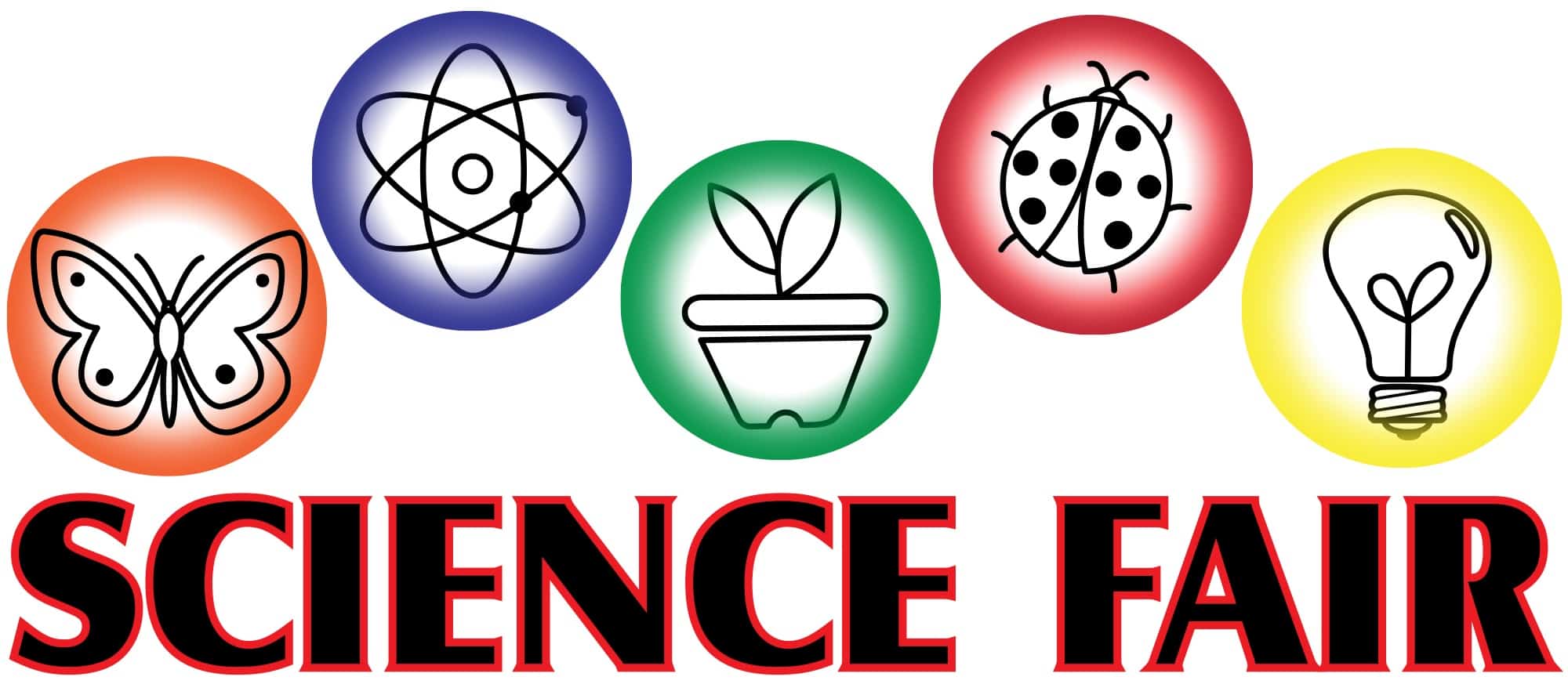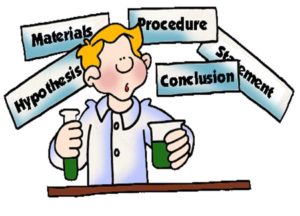
 My seventh grade science notebook was a thick, blue spiral. One of the very first pages was a flow chart of the scientific method. Ms. Finneran (I was so excited that she was my homeroom AND science teacher) taught us that scientific method so we knew it inside and out, and when it came time to prepare a science fair project, it came in handy.
My seventh grade science notebook was a thick, blue spiral. One of the very first pages was a flow chart of the scientific method. Ms. Finneran (I was so excited that she was my homeroom AND science teacher) taught us that scientific method so we knew it inside and out, and when it came time to prepare a science fair project, it came in handy.
The science fair was a labor of love and my dad worked as hard on it as I did. I (We?) was thrilled with a second place win. Years (ok, decades) have gone by and now I’M the science teacher. However, instead of the blue spiral notebook, my students take notes on Chromebooks and submit their homework electronically through Google classroom. They do many more labs than I ever did – they are able to test water and filtration systems through science kit products and diagnose patients based on test results and data. And they get to engineer — to imagine, build, design and evaluate products of their own creations as they solve a problem.
So, does doing a science fair even make sense at this point? Have we become so advanced with in-class labs that these fairs seem antiquated? Do science fairs accurately simulate the work of scientist? And does it fit with the Next Generation Science Standards (NGSS)?
I start my students working pretty much the first day of school and all my sixth- through eighth-grade students participate. Honestly, about mid-December, I am pretty tired of science fair preparation — even though we still have six weeks to go until the big day. After eleven years of teaching, I started looking for a way to justify dumping the science fair.
However, after much reflection, I realized that science fairs ARE still relevant, and here is why.
Because my students have more choices today about experiments they would like to do, they come up with new ideas every year. My students can choose to conduct a traditional science fair experiment (though I draw the line at Coke and Mentos eruptions) and through this option they have found ways to eradicate invasive species in our lakes and have discovered ways to use greywater to grow plants.
They can also choose to do an engineering design project. They have powered iPhones with bicycles, have made hover boards, and have designed a spoon that cools your soup.
So YES! Science fairs are still relevant, as they not only replicate the work of scientists who formulate, test, analyze and hypothesize, but who share their findings through oral and written presentations. Not only is a science fair representative of twenty-first century skills, but yes, it matches NGSS.
Look at this… the NGSS organization asks students to be creative, and what could be more creative than a student who makes a spoon that cools your soup?
NGSS wants students to ask questions — sounds suspiciously like a problem statement, but don’t quote me…
The NGSS encourages thorough research and rigorous understanding (sorry kids, the research paper requirement stays).
And NGSS asks for data collection and analysis and evidence — hmm, again, suspiciously like my requirements for the science fair project.
So, yes, the science fair stays — a good science fair celebrates students who challenge themselves by finding creative and original solutions to real world problems through collaboration. Easy? No. Essential? Yes.